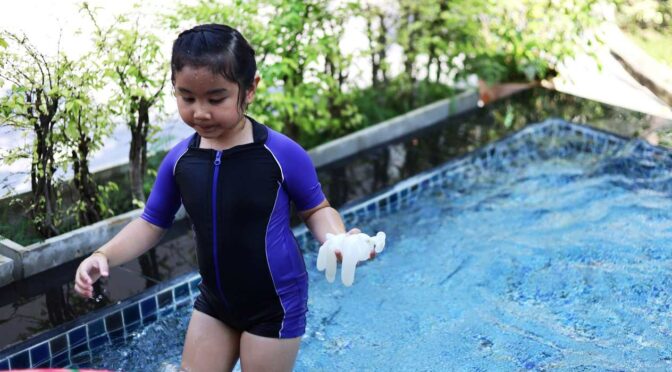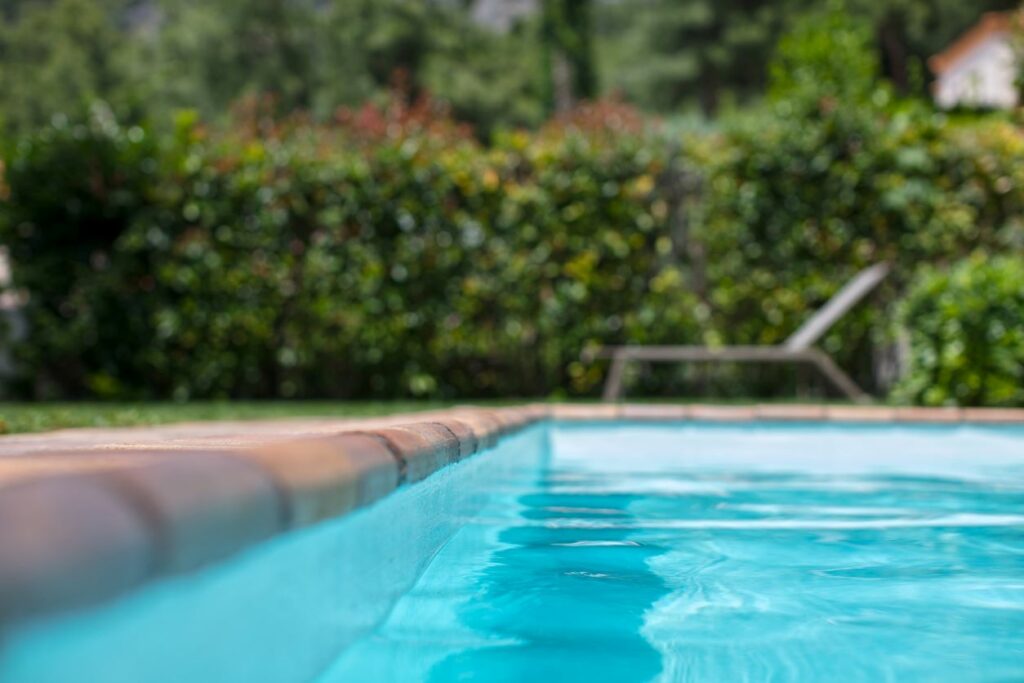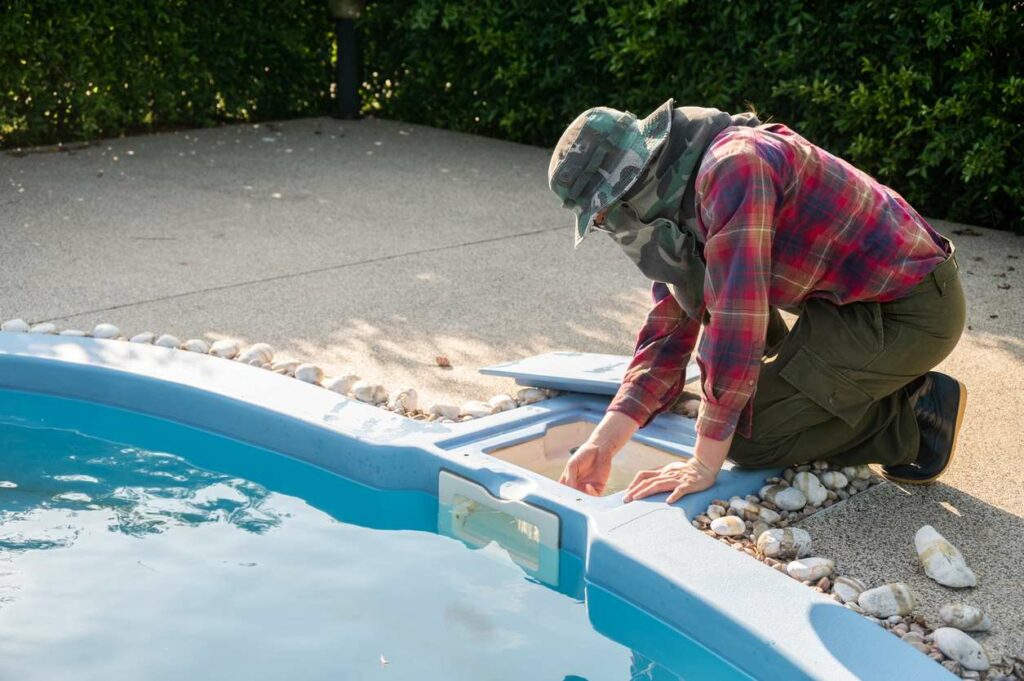
Preparing your swimming pool for winter is important to keeping it in good condition and helping protect it from damage. By following steps from Central Self-Storage, you’ll help ensure your pool’s and equipment’s safety during the winter as our pool winterization guide covers essential tools, chemicals, and common mistakes to avoid. With proper maintenance, your pool will be ready for use when the weather warms up.
Essential Tools and Chemicals for Winterizing Your Swimming Pool
To prepare your swimming pool for winter, gather the following tools and chemicals:
- Pool cover. Invest in a durable and secure pool cover to shield your pool from debris and harsh weather conditions during the winter months.
- Pool brush and skimmer. Ensure you have a pool brush and skimmer to clean the pool thoroughly before closing it for winter.
- Winterizing chemicals. Stock up on winterizing chemicals such as algicide, shock treatment, and a winterizing kit to maintain water quality and prevent algae growth.
- Air compressor. An air compressor must blow out the pool plumbing lines to prevent freezing and damage.
Step-by-Step Guide To Winterize Your Swimming Pool
1. Balance the Water Chemistry
A good way to winterize your pool is to test the water and adjust the pH, alkalinity, and sanitizer levels so they’re in the right range. By keeping your chemical levels in check during the colder months, you can extend the life of your pool and equipment.
2. Clean the Pool
Clean your pool completely by removing debris, vacuuming, brushing the walls and floor, and looking for buildup on corners, steps, and waterline tiles. Cleaning thoroughly before winter prevents algae growth and stains. Winter pool care is important to help ensure a smooth reopening in warmer weather.

3. Lower the Water Level
Drain the pool water below the skimmer opening to prevent freezing and expansion. By winterizing, you’ll help protect your pool from harm in the winter and ensure a trouble-free reopening when the swimming season returns.
4. Add Winterizing Chemicals
Follow the manufacturer’s directions when adding winterizing chemicals to keep your pool water balanced during the winter. Algicide and stain treatments are essential for inhibiting algae growth, preventing stains, and helping protect pool surfaces and equipment during winterization.
To make the winterizing chemicals as effective as possible, distribute them evenly throughout the pool. Adding these chemicals to your winterization process helps ensure your pool stays in great shape. It’ll be seamless and enjoyable when the swimming season returns.
5. Blow Out Plumbing Lines
During winter, you must remove water from your pool’s plumbing, including the pump, filter, and heater, with an air compressor to prevent freezing and damage. Thoroughly cleaning the plumbing lines will prevent winter-related complications and hefty repair bills.
6. Install the Pool Cover
The best way to help protect your pool from leaves, dirt, and debris is to cover it securely with a well-fitted pool cover. In addition to making spring cleaning easier, the cover reduces evaporation and sun exposure and prevents algae growth. By correctly installing a dependable pool cover, you help ensure your pool’s protection and upkeep during winter so it’s ready for next year.

Common Mistakes To Avoid When Winterizing Your Swimming Pool
To prevent your swimming pool from getting damaged or requiring maintenance during the winter, avoid these mistakes:
1. Neglecting Water Chemistry
If the water chemistry isn’t balanced before you close the pool, algae can grow and stain. When the water isn’t balanced, it can cause buildup and corrosion, so you’ll have to make repairs in the spring. Adjusting and maintaining your pool’s water chemistry before winter arrives is important to prevent these problems.
2. Incomplete Cleaning
If you don’t clean your pool well before winterizing, it can collect dirt and debris, making spring reopening challenging. The accumulation of dirt, leaves, and debris on the pool walls, floors, and surfaces can degrade the water quality and encourage bacterial growth.
In addition, improperly cleaning the pool filter can reduce filtration efficiency and strain the pump system. Properly cleaning all pool components before winterization is crucial to avoid problems during the dormant season.
3. Improperly Installing the Pool Cover
A pool cover that does not fit properly may permit debris and pests to access the pool, resulting in damage. Unsecured pool covers may also allow leaves and dirt to infiltrate the water, making water quality difficult to maintain.
Moreover, an inaccurately installed cover could allow rainwater or snow to gather on the surface, potentially harming the pool’s structure. Helping ensure the proper fit and securement of the pool cover is crucial to protecting the pool throughout the winter season, preventing damage, and facilitating a seamless reopening when temperatures increase.
Winterize Your Pool and Store With Central Self-Storage
Central Self-Storage is a great place to store pool equipment and accessories during the offseason, so you don’t have to worry about taking up space in your home or garage. With Central Self-Storage’s convenient locations and flexible rental options, helping keep your pool stuff tucked away and organized until the warm weather returns is easy. Make your life easier by effectively preparing your pool for winter with us. Call or contact us online to reserve a unit for a stress-free winter!


